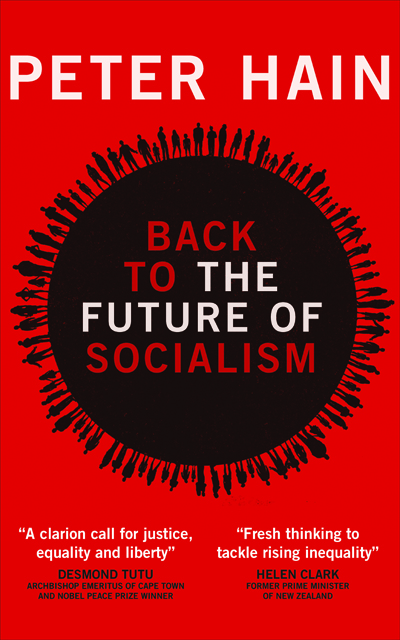Book contents
- Frontmatter
- Contents
- Frontmatter
- Preface
- Introduction: Back to the future of socialism
- 1 The Crosland agenda
- 2 New Labour, Crosland and the crisis
- 3 Finance and the new capitalism
- 4 Growth not cuts
- 5 Growth by active government
- 6 Fraternity, cooperation, trade unionism
- 7 But what sort of socialist state?
- 8 A new internationalism
- 9 Britain in Europe
- 10 Refounding Labour
- 11 Faster, sustainable growth
- 12 A fairer, more equal society
- 13 A future for Labour
- Notes
- Index
3 - Finance and the new capitalism
Published online by Cambridge University Press: 15 April 2023
- Frontmatter
- Contents
- Frontmatter
- Preface
- Introduction: Back to the future of socialism
- 1 The Crosland agenda
- 2 New Labour, Crosland and the crisis
- 3 Finance and the new capitalism
- 4 Growth not cuts
- 5 Growth by active government
- 6 Fraternity, cooperation, trade unionism
- 7 But what sort of socialist state?
- 8 A new internationalism
- 9 Britain in Europe
- 10 Refounding Labour
- 11 Faster, sustainable growth
- 12 A fairer, more equal society
- 13 A future for Labour
- Notes
- Index
Summary
Throughout his ten years as Chancellor, Gordon Brown’s consistent mantra was that New Labour’s economic policies had abolished ‘boom and bust’ and were building ‘a platform of stability’.
Sadly, however, that platform proved to have been a polyfilla villa erected on flimsy foundations when the global financial crisis hit in 2008. It was a crisis which confirmed that, since Tony Crosland’s death in 1977, capitalism had evolved in ways which he could not have anticipated and would not have welcomed, and which undermined the ability of governments to build stable societies and growing economies. A crisis that shattered the post-1980s neoliberal myth about a financial system with supposedly self-stabilising properties. A crisis that above all else demanded fundamental reform of the financial system: a scale of reform moreover which simply was not attempted, even after all the government promises to ensure the worst global collapse for at least 80 years could never be repeated.
The financial elite
In his January 1961 farewell address, President Eisenhower warned America against two dangers. First, the acquisition of unwarranted influence over government decisions by a ‘military-industrial complex’. Second, the risk of public policy becoming captive to a ‘scientific-technological elite’.
What no one in the Anglo-Saxon economies foresaw was the emergence of a financial elite, a charmed circle with easy access to the corridors of power gained by instilling the belief that whatever went down well with the big banks and financial institutions on Wall Street and in the City of London was good for the US and the UK. The rise of such a financial elite in Britain and America was held in check by regulation dating from the 1930s, until the 1980s.
That was when deregulation began under Ronald Reagan and Margaret Thatcher, lifting restrictions separating commercial and investment banking, when traditional retail banks became exposed to the ‘profit at any price’ culture of the international investment banks, and when the seeds of securitisation and financial engineering were sown.
Securitisation allows banks to raise capital quickly by selling certificates that entitle the buyer to a share in future streams of cash, say from 25 years of monthly mortgage repayments, and to use that capital to make fresh loans. What such ‘mortgage-backed securities’ are worth today depends on the value of the flow of future payments.
- Type
- Chapter
- Information
- Back to the Future of Socialism , pp. 39 - 62Publisher: Bristol University PressPrint publication year: 2015



